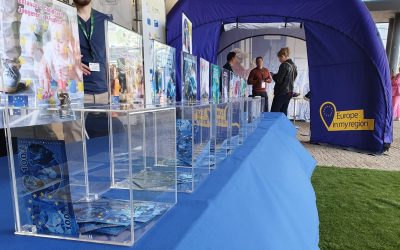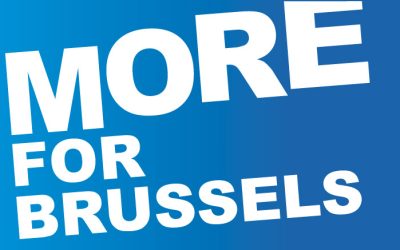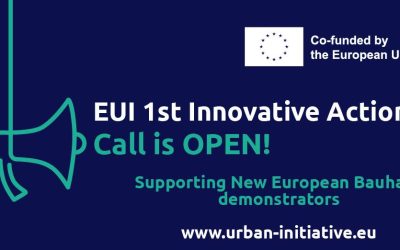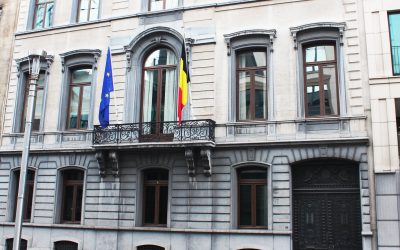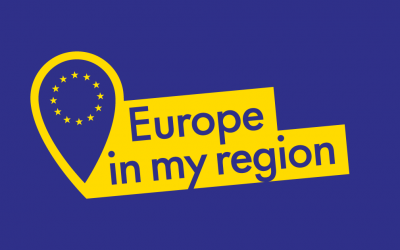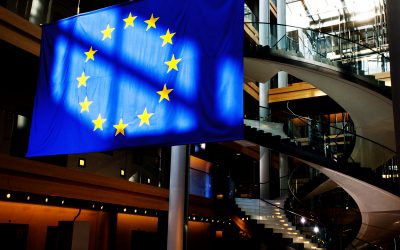New Cohesion Policy 2021-2027
EU Cohesion Policy contributes to strengthening economic, social and territorial cohesion in the European Union. It aims to correct imbalances between countries and regions. It delivers on the Union’s political priorities, especially the green and digital transition.
In order to reach these goals and address the diverse development needs in all EU regions, € 392 billion – almost a third of the total EU budget has been set aside for Cohesion Policy for 2021-2027.
Cohesion Policy and
the Commission’s political priorities
Cohesion policy has a strong impact in many fields. Its investments help to deliver many EU policy objectives and complements EU policies such as those dealing with education, employment, energy, the environment, the single market, research and innovation.
The projects financed in the regions and cities contribute the goals of the Commission priorities, notably:
Priorities for 2021-2027
In 2021-2027 EU cohesion policy has set a shorter, modern menu of 5 policy objectives supporting growth for the period 2021-2027.
The Joint Action Plan includes actions on:
- A more competitive and smarter Europe
- A greener, low carbon transitioning towards a net zero carbon economy
- A more connected Europe by enhancing mobility
- A more social and inclusive Europe
- Europe closer to citizens by fostering the sustainable and integrated development of all types of territories
The European Regional Development Fund (ERDF) aims to strengthen economic, social and territorial cohesion in the European Union by correcting imbalances between its regions. In 2021-2027 it will enable investments in a smarter, greener, more connected and more social Europe that is closer to its citizens.
The new 2021-2027 ERDF programme in BCR
Context
The implementation of the cohesion policy in the different regions of Europe is conditional upon the EU adopting the regulations on cohesion policy.
For the 2021-2027 period, these regulations were adopted in June 2021. Short timing for the Member States responsible for launching the different programmes, given that the programming period is 2021-2027.
The partnership agreement
In Belgium, the regions and communities, as managing authorities, define the multi-annual programmes based on the reality of the regional territories.
In the framework of the cohesion policy and in cooperation with the Commission, each Member State must draw up a partnership agreement. For Belgium, this partnership agreement was signed on 14 December 2022. Focused on EU priorities, it sets out the strategy and detailed investment priorities for the structural funds in the regions and communities.
Belgium will receive a total of nearly €3 billion in cohesion policy funds in 2021-2027 to accelerate its green and digital transition and support the development of a competitive, innovative and inclusive economy.
The draft 2021-2027 ERDF Programme
The development of the 2021-2027 ERDF programme for the Brussels-Capital Region
For the first time in the Brussels-Capital Region, the ERDF department itself has drafted the 2021-2027 programme.
Although this task had previously been carried out by external service providers, the department wanted to take up this challenge due to its expertise and its proximity to the stakeholders in the field.
An ERDF budget of €121 million
(total budget of €303 million)
In line with the European priorities, the programme will invest more than 121 million euros of ERDF funds (and including co-financing, a total of more than 303 million euros) in the following areas of intervention: innovation, digitisation and business competitiveness for regional development (41%), investment in the environment for the benefit of inhabitants and regional development (45%), investment in accommodation for specific groups (5%), support for the equipment policy for urban development dynamics (9%).
A programme that we are indeed very proud to have supported!
The steps in writing the programme
Between March and December 2021, the ERDF department worked on writing a preliminary draft programme, setting out an effective strategy for the use of financial resources, describing the operations to be supported, the developments targeted, and the measurable results that the funding should generate. Great attention has therefore been paid to the description of the actions that the Programme will have to implement.
On 3 February, the Brussels Government approved the preliminary draft ERDF programme incorporating these various strategic data (and diagnostic elements). The preliminary draft was subject to a public enquiry and to a consultation with partners (advisory boards, etc.).
In July 2022, the draft programme passed its second reading by the BCRG. In September 2022, the ERDF programme was then submitted to the European Commission for adoption on March 23, 2023.
An investment programme supporting nine specific priority objectives
|
Specific objective 1.1 |
Improve research and innovation capacities and the use of advanced technologies |
|
Specific objective 1.2 |
Reap the full benefits of digitisation for citizens, businesses and public authorities |
|
Specific objective 1.3 |
Strengthen the growth and competitiveness of SMEs |
|
Specific objective 2.1 |
Promote energy efficiency measures |
|
Specific objective 2.6 |
Foster the transition to a circular economy |
|
Specific objective 2.7 |
Improve biodiversity, strengthen green infrastructure in urban areas and reduce pollution |
|
Specific objective 4.3 |
Promote the socio-economic integration of marginalised communities, migrants and disadvantaged groups through integrated measures, including housing and social services |
|
Specific objective 4.4 |
Promote the socio-economic integration of third country nationals, including migrants, through integrated measures, including housing and social services |
|
Specific objective 5.1 |
Take measures to strengthen integrated social, economic and environmental development, cultural heritage and security in urban areas |
Each specific objective is linked to various actions that will be the subject of thematic calls for projects.
Unlike with the previous programme, several calls for projects will be launched throughout 2023 and 2024.
LAUNCH OF THE 2021-2027 PROGRAMME AT THE FACULTY
On 23 November 2022, 150 guests participated in the launch of the 2021-2027 ERDF programme, with a presentation of the main aspects of the new programme, followed by a networking lunch. An opportunity for the many participants to understand the outline of the new programme and share their experiences.
It should be noted that in October 2022, the ERDF department organised a first information session on calls for projects concerning the financing of community facilities under sustainable neighbourhood contracts or urban renewal contracts, calls for projects that fall under the objective “a Europe closer to citizens“.
Programmation 2021 – 2027 News
Europe Day 2023 in Brussels
On May 6th, ERDF had the opportunity to initiate a citizens’ dialogue on projects financed by European funds.
The Launch of the 2021-2027 Programme
Watch the launch of the ERDF 2021-2027 programme online video again
First Call for Proposals of EUI
With an indicative budget of EUR 50 million ERDF, the first Call for Proposals of EUI – Innovative Actions is targeting innovative projects …
The new ERDF Programme 2021-2027 approved by the BCR Government
This programme, supported by the European Union through its cohesion…
BI takes part in the European #EUinmyregion campaign
Brussels International takes part in the European #EUinmyregion campaign…
The BCR Government has validated a new preliminary draft of the new ERDF programme
This programme, which is supported by the European Union to the tune of…







